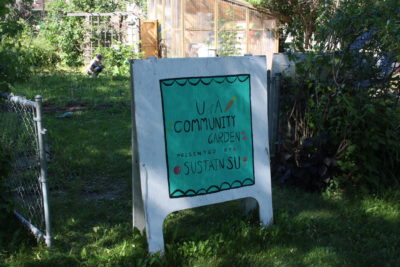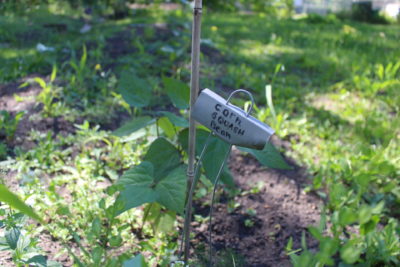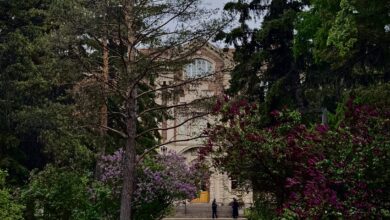Sustain SU Campus Garden talks impact of the pandemic
After a two year hiatus, the campus community garden is back to growing.
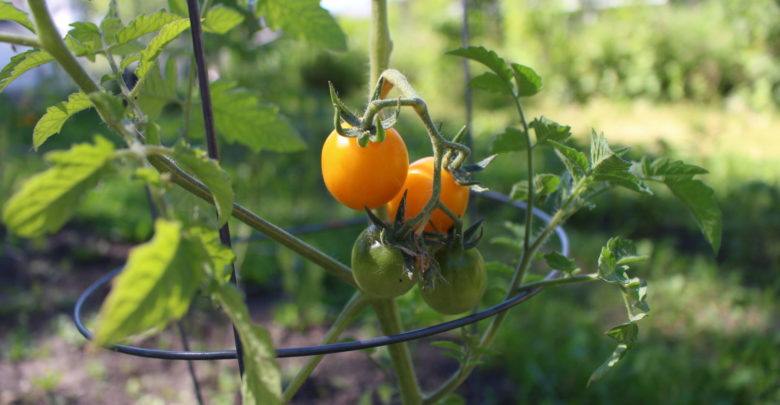 Emily Williams
Emily WilliamsHoused on the east side of campus between residence buildings and fraternities lies the campus garden featuring vegetables, fruit bushes, and native plants.
Organized by the University of Alberta Students’ Union (UASU) Sustain SU, the space is dedicated to fighting food insecurity, giving student volunteers experience in the garden, and naturalization. After two years of lower activity, the garden is back and will be active from the spring through the fall — with the majority of food being donated to the Campus Food Bank.
Latifat Busari, Sustain SU involvement coordinator and fourth-year earth and atmospheric sciences student, said the garden is a way to promote sustainability and bring students together.
Busari said that she grew up surrounded by plants.
“I’m indigenous to southwest Nigeria and historically, my ancestors and even my parents have always planted things,” she said. Busari explained how she has always grown up eating out of her family’s garden.
“I thought it was a universal experience.”
She explained that the reason she got involved with the garden was to learn how to grow plants in a new climate and promote sustainability.
One of the guiding principles of the garden is naturalization, aligned with the type of gardening Busari grew up with. She explained that naturalization is the process of allowing native plants “the freedom to grow,” which is unconventional in mainstream Canadian gardening.
“Here in this part of the world, they focus on aesthetically pleasing things. And if something is not looking pretty enough, usually it is cut down.”
She explained a lot of what is in the garden is growing wild and was never planted, such as wild chives, irises, and rhubarb.
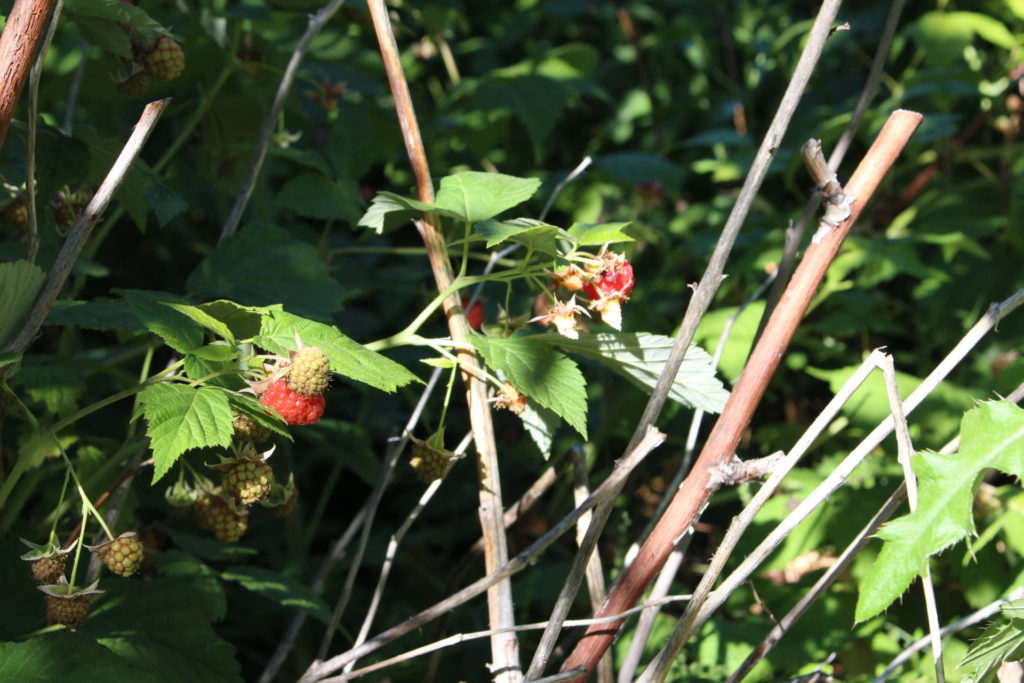
Busari said she noticed that the diversity she sees at the campus garden is hard to find in the broader community.
“I feel like a lot of the community gardens that are around Edmonton … they’re not diverse enough —they’re very White-centered,” she said.
She also mentioned that community gardeners tend to be older demographics and those of a higher socio-economic status who are able to rent their garden plots — a space that may be less accessible to students.
“They are usually people who have already had an established job and financial security,” Busari said. “Something that we try to make sure is that whoever signs up to volunteer with us, they know that they’re supported.”
“And a big part of sustainability is also the economic and human part of it.”
The garden also does composting and rainwater collection. Busari explained that the rainwater collection has become increasingly important as the garden used to get water from a fraternity next door, which has since been demolished.
“When this place was developed in 2003, they set up a whole [irrigation] system … but this year, we had to find alternatives.”
The volunteers and staff have also faced some obstacles after two years of inactivity due to the pandemic. Busari said they spent last year cleaning up the debris and waist-high weeds and were unable to plant anything. As a result, they are wanting to revive engagement this year as they return to gardening.
“The volunteer base has kind of been low this year. We hope that more people get aware about the garden and know that it’s a cool place to just hang out.”
For those who volunteer, the garden can become a place of community engagement and fun at events like the fall harvest party.
“As much as we give the most that we can to the Campus Food Bank, a little is for appreciation for the volunteers. So we do a grill of all the things that we planted during the year.”
Moving forward, the garden is hoping to continue to grow and provide fresh food for the Campus Food Bank through a new solar greenhouse. The greenhouse was created in a partnership with the Renewable Energy Design (RED) club on campus, and designed by Exceed Solar.
Busari explained that the garden is more than a space for food production, it plays an important role in education and as a community gathering place for students. Through weekend group shifts with snacks and a picnic, they are hoping to promote this socialization.
Busari wanted students to know that growing food can be easy, and can help with food insecurity — and that the campus garden can be a space for students to explore this.
“Having the space to be able to give people that education and reinforcement is something that’s really important, especially to a lot of marginalized people.”

